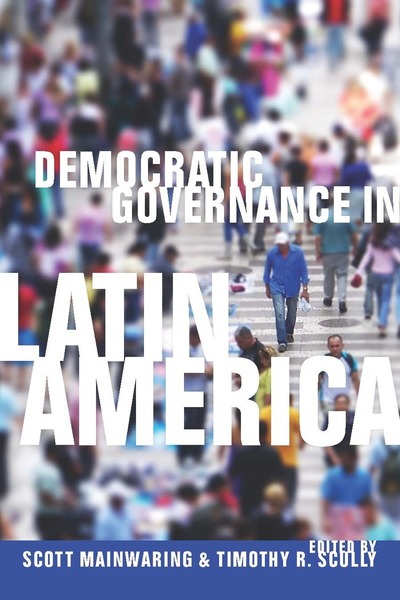
2009
440 pages.
from $38.00
Paperback now $19.00 (50% off)
Hardcover ISBN: 9780804760843
Paperback ISBN: 9780804760850
Ebook ISBN: 9780804772969
Producing more effective governance is the greatest challenge that faces most Latin American democracies today—a challenge that involves not only strengthening democratic institutions but also increasing governmental effectiveness. Focusing on the post-1990 period, this volume addresses why some policies and some countries have been more successful than others in meeting this dual challenge.
Two features of the volume stand out. First, whereas some analysts tend to generalize for Latin America as a whole, this group of authors underscores the striking differences of achievement among countries in the region and illustrates the importance of understanding these differences. The second feature is the range of expertise within the volume.
In addition to the volume editors, the contributors are Alan Angell, Daniel Brinks, Fernando Henrique Cardoso, José de Gregorio, Alejandro Foxley, Evelyne Huber, José Miguel Insulza, Juliana Martínez Franzoni, Patricio Navia, Francisco Rodriguez, Mitchell Seligson, John Stephens, Jorge Vargas Cullell, and Ignacio Walker.
About the authors
Scott Mainwaring is the Eugene Conley Professor of Political Science and Director of the Kellogg Institute for International Studies at the University of Notre Dame. Timothy Scully is Professor of Political Science at the University of Notre Dame and a Fellow of the Kellogg Institute.
"Mainwaring and Scully have assembled an exceptionally distinguished set of scholars, and their contributions do not disappoint. The essays in this volume are original, learned, and lively studies of economic, political, and social achievements in Latin America. They both advance the understanding of human development in the region and provide analyses and conclusions of considerable practical importance and policy relevance."
—James McGuire, Wesleyan University
"Democratic Governance in Latin America is a great book on an important topic. It helps fill a substantial gap in the scholarly literature: it examines what democracies actually do, rather than what—according to some observers—they should do, and it seeks to advance toward measurement based on actual, observable policy outcomes."
—Kurt Weyland, University of Texas at Austin